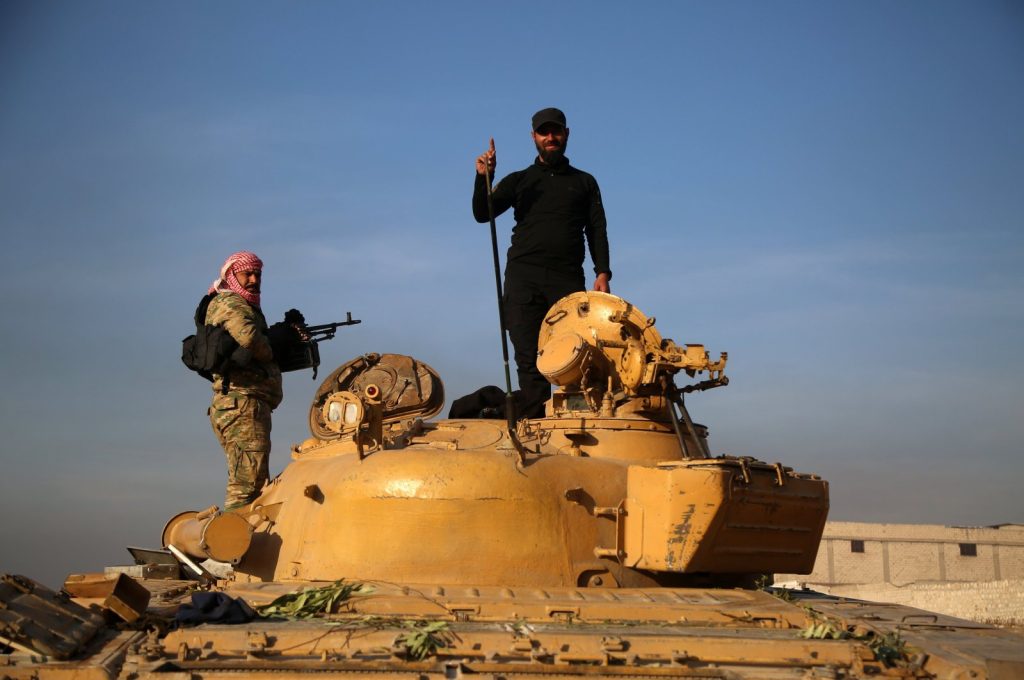The Middle Eastern developments continue to set the agenda of international politics. The Al-Aqsa Flood has become a turning point for the whole region. The ongoing genocide in Gaza against the Palestinian people and the Israeli aggression against the sovereignty of regional countries, directly and indirectly, influence all regional dynamics. Israel’s attacks against Hezbollah in Lebanon and Iranian proxies in Syria have dramatically changed the Syrian context as well. As a result of the shifted regional balance of power, the opposition forces, led by the Hayat Tahrir al-Sham (HTS) and the Syrian National Army (SNA), initiated a military operation against Syria’s Bashar Assad regime on Nov. 27.
After Russia reduced its military forces in Syria, the withdrawal of Hezbollah from the country, the weakening of Iran’s regional dominance and the Assad regime’s groundless self-confidence and anti-peace attitude led the Syrian opposition forces to initiate a military operation against regions under the control of the Assad regime. The military operation that started on Nov. 27 has dramatically changed the realities on the ground. While the situation in the country is still unclear, it has become clear that some actors have already lost ground in Syria.
The biggest loser of the latest developments in Syria is the Assad regime, who has refused Türkiye’s extended hand for normalization, stability and peace. Türkiye has proposed that the Assad regime initiate a negotiation process and normalize bilateral relations. However, after the Assad regime rejected the Turkish call to initiate a reform program in the country to refrain from the civil war in August 2011, the regime declined the second Turkish offer, calling the regime to start negotiations with the opposition to find a final solution to the crisis. The main reason behind its rejection was the overconfidence of the regime, whose relations with most Arab countries normalized within the last year. Furthermore, Iranian officials prevented the regime from normalizing its relations with Türkiye.
The Assad regime has lost a large part of the territory under its control to the opposition forces, mainly HTS and SNA. On the one hand, in less than a week, more than a hundred villages and towns, most importantly Aleppo, Syria’s second-largest city, have been recaptured by the opposition forces. The Assad regime’s traditional supporters, namely Russia, Iran, Hezbollah and Shia militias, are each dealing with specific existential threats and, therefore, are unable to mobilize their resources to support the regime. The new realities on the ground are one of the most critical fait accompli in Syria for the last six years. Now, the opposition forces have a more balanced position in the country. This new military balance will also naturally influence political, economic and diplomatic dimensions.
On the other hand, the Assad regime has begun to experience problems within itself. According to leaked reports to the international media, some parts of the army factions have left the regime and joined the opposition. In addition, the regime left most of its weapons with the opposition forces, which increased the opposition’s aerial defense capacity. As a result of all these developments, the Assad regime is experiencing its most fragile and weakest period in history. According to the new realities on the ground, the future of the Assad regime is questionable. The less territory it controls, the harder it will be for the Assad regime to maintain its dominance and power in the country.
The second factor that has lost ground in Syria is Iran, which Israel has directly targeted for the last several months. Iran has been passing through a challenging period, during which its president was killed in a helicopter crash, and the leader of Hamas, Ismail Haniyeh, was assassinated in its capital city. Given the deepening economic crisis, rising social unrest, growing political instability and spreading anti-Iranian regional developments, Iran’s ability to reverse conditions on the ground is more limited. Iran has largely abandoned its assertive regional policy; instead, it has to take a defensive posture in the region. Furthermore, the leadership cadres and hundreds of senior members of Hezbollah, Iran’s strongest proxy in the Middle East, were largely destroyed by Israel. It had to withdraw its forces from Syria and thus created a power vacuum in many regions.
The third actor who lost ground in the country is Russia, which reduced its military existence in Syria after the Ukrainian-Russian War, which negatively influenced Russian policies toward the Middle East. Russia has withdrawn the majority of its military troops, experienced military commanders and advanced weapons systems from Syria and sent them to the Ukrainian front. The recall of successful military commanders and effective ground forces, including the Wagner troops, has created a severe power vacuum in Syria. For instance, Russia has abandoned some of its strongholds, including some airports and other strategic places. As a result, Russia’s ability to control developments on the ground has weakened.
Arab countries, who have normalized their relations with the regime recently, also lost their influence in Syria. Countries like Egypt and the Gulf states have developed regional plans and projections based on the Assad regime. Those Arab states have been trying to decrease the impact of both Iran and Türkiye in the country. However, with the weakening of the regime, these Arab states fail to realize their projections. Gulf states such as Saudi Arabia and the United Arab Emirates have already overstretched their capacities due to their deep involvement in different regional crises. Therefore, their current capabilities cannot afford to provide enough military and financial support to the Syrian regime.
All in all, the Russia-Iran-Hezbollah-Assad/Syrian regime coalition has weakened as a result of the Russian invasion of Ukraine, the Iranian expansionist policies in the Middle East and the Hezbollah’s recent degradation. The latest military operation by the Syrian opposition against the Assad regime has dramatically damaged this already weakened coalition since the most critical part of the coalition, the Assad regime, has lost its credibility as well as its power.


